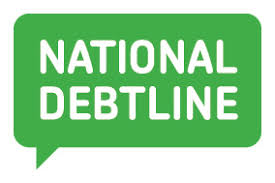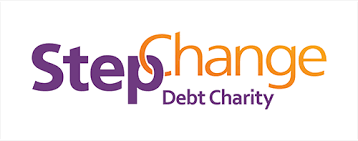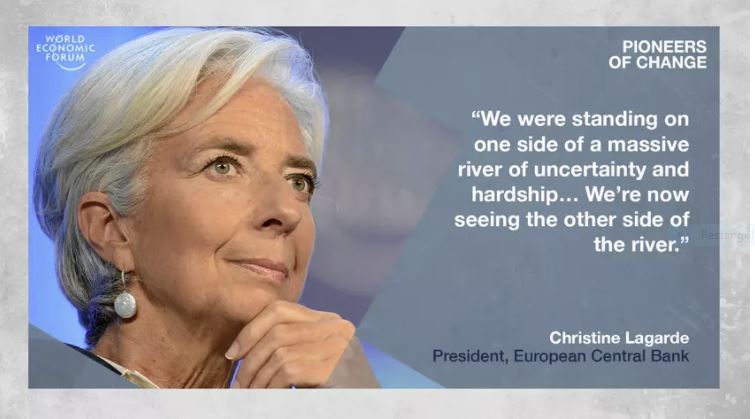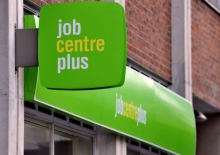Work TV
Watch our TV Channel dedicated to the ‘World of Work’. Explore our video library for informative videos featuring career opportunities at leading companies, franchising opportunities, further education and recruitment professions and their services.
Simon Collyer
EU-UK Trade and Cooperation Agreement 24.12.2020
EU - UK TRADE Agreement - The agreement is attached for those of you who like a nice long read.
The agreement will be voted on in Parliament on the 30th December with precious little time for the text to be examined by MP's
ABC Comment, have your say below:

EU-UK Trade and Cooperation Agreement 24.12.2020

Living Expenses Remain the Number One Reason Brits Go into Debt
DEBT - Almost eight in 10 UK adults will be carrying debt into 2021, new research has revealed.
And, while the average amount owed has reduced compared to the previous year, the most common reason for 2020 debt is, worryingly, ‘normal living expenses’, according to the research.
Just 22% of the nation won’t be carrying debt into 2021, according to the study by financial comparison experts money.co.uk. What’s interesting is that 2% fewer people will be carrying over debt into the new year than this time last year.
That means, mortgages aside, 78% will go into the New Year with some form of personal debt - including money owed on credit cards, personal loans, car loans, bank overdrafts and payday loans.
Experts say the really concerning figure is that 35% of people’s personal debt is largely due to ‘normal’ living expenses. A further 15% say their debt is due to Christmas spending and 31% have identified that their personal debt is due to changed financial circumstances caused by the COVID-19 pandemic.
The study of British adults was commissioned by financial comparison experts money.co.uk in December 2020 and shows that the average British adult ended 2020 with £9,246 worth of total debt – down 33% compared to last year’s average of £13,910.
Men are taking more debt into 2021 than women – UK males have an average of £11,581 debt at the end of 2020 compared to women, who have an average debt of £7,016 which they’ll carry over into 2021
- 78% of UK adults will carry over debts into 2021
- £9,246 worth of total debt per person – 33% less than last year’s average
- £2,465 is the average credit card debt
- Brits will take almost three years to pay off their debts
- A third have gone into debt this year due to COVID-19
- Coronavirus Debt Index reveals the impact of the pandemic on the UK’s personal finances
Salman Haqqi, personal finance expert at money.co.uk, said: “Our research shows that it has been a particularly difficult year for the country financially. There’s been the coronavirus pandemic, and with it, unemployment and furlough, plus the rising cost of everyday living to consider.
“Yet, despite this, the good news is that people are generally carrying less debt across into 2021 than they did the previous year. However, our study also shows that one in four people are paying off the minimum amount in repayments but less than the full amount on their credit card every month, which will be costing them.
"It's worrying to see that so many never move their debt around to take advantage of better interest rates, something that could save them hundreds of pounds a year and help them pay off their debts sooner.
"One of the most troubling stats is that 35% of people are using debt to pay for household essentials, showing that the cost of living just isn’t covered by their regular income.
"It's always worth going online and investigating what options are available to you, especially as the new year starts, as there may be cheaper alternatives and strong offers from lenders."
One in five Brits plan on paying off their debt by consolidating the different debts they owe, up 7% compared to 2019. But 44% of people say they don’t move debts to take advantage of better interest rates.
Some £2,465 of the average debt is owed on credit cards, according to the research. Those aged 45-54 have the most credit card debt (£3,121) with those aged 16-24 having the least (£1,640).
Geographically, people living in Northern Ireland have the most credit card debt (£8,323) whilst those in the south-west have the least (£1,473).
But UK adults have actually reduced the amount of debt on their credit card by an average of £500 compared to the previous year, according to the money.co.uk research.
Some 15% of people say they have personal loans (down over 3% from last year), 14% have overdraft debt (down 4% from the previous year), just over 11% have car loans and just over 15% have payment plan loans for home goods or white goods. A further 7% have store cards and 6% have payday loans to repay.
In terms of repaying, the average time needed to pay off debts is almost three years (2.9). However, 27% of people say it will take between one and two years to pay off their debt, and 15% say they can pay it off in less than a year. Those in Wales will take the longest to repay their debut - an average of 3.3 years.
Those living in London are most likely to carry debt into the new year. According to the study, 36% of those living in the Greater London area will carry debt into 2021. But the number of people, countrywide, carrying debt across from the previous year into this year, is actually down 10% year-on-year.
Salman Haqqi added: “Nearly 20% of those we polled say they have taken out a credit card to cover the personal cost of the COVID-19 pandemic, while 12% say they have taken out more than one additional card.
“And it is clear that the debt situation is causing worry right across the country – with one in four people admitting they’re worried about their debt this year. And although this is 4% fewer people who are worried than there were at this time last year, it is clearly still a concern.”
The money.co.uk research also shows that for 21% of people their debt repayments account for 11-20% of their salary.
ABC Comment: If you are struggling with debt, these organisations could help:
National Debtline:
Stepchange:
ABC Comment, have your say below:

Happy Christmas and a Happy New Year From the ABC
SEASONAL GREETINGS - Happy Christmas and a Happy New Year to our global audience.
The ABC was founded to provide information, ideas, and signposting to those on social security benefits and state pensions.
We launched on November 5th 2014 – a great day for revolutionaries, and we have kept going onward and upwards ever since!
We get asked to comment and we have recently appeared on BBC Essex (five times in 2020), talkRADIO (weekend breakfast show), Chelmsford Community Radio, Future Radio and on RT TV (fourth time) as well as British Forces Broadcasting, BBC Look East, and more including print media…
Discussions have included the triple lock pension, the eviction moratorium, the high cost of facemasks for those on welfare, unemployment, universal credit, the economy, and additionally employment issues and TV licences and the over 75’s, are just some of the topics we have been asked to comment on recently.
We have campaigned on many issues, stopping discrimination in the housing market for those on benefits and getting the eviction moratorium moved. We have written to the Queen twice in 2021 and several ministers and civil servants.
People on welfare are classed as workers, but they are also human beings first and foremost and we are pleased and delighted to give a voice to this large section of this often-overlooked community.
Millennium Award winner Simon, was trained in speech and drama, elocution and public speaking. Simon is also engaged in presenting a talk called Human Potential in schools about how to succeed in life and successfully navigate life’s highway. Our first talks in two Portsmouth schools were helped by Team INEOS who are currently preparing for the PRADA Cup, the selection series for a challenger for the 36th Americas Cup in New Zealand, the final match racing at Easter time.
The World Economic Forum kicks off in January 2021 - expect to hear a lot of talk about the Great Reset and Building Back Better. We will be hearing today about the BREXIT deal the government has finally negotiated. Nigel Farage will cry sellout no doubt but for many, there may be a sigh of relief. We shall see.
Whatever happens life on earth will continue for now and 2021 can hardly be as bad as that of 2020. Or can it...? We remain quietly optimistic all will come good.
We have some exciting projects in the pipeline, 'watch this space' as they say.
Have a very Happy Christmas and a Happy New Year.
Simon Collyer and the ABC Team
ABC Comment, have your say below:

Drivers at Dover Fed By The Salvation Army
DOVER - Drivers at Dover are being fed by the Salvation Army.The 'Sally Army' do great works at Christmas time and it is no suprise to hear that they have been helping stranded lorry drivers.
The borders as we know are now open thankfully, subject to a Covid-19 test for drivers.
Pressures from governments such as Poland who wanted to get its drivers home has contributed.
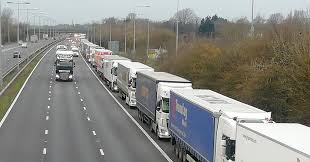
ABC Comment, have your say below:

Jobcentre Guidance On COVID-19 Local Restriction Tiers
JOBCENTRE PLUS ACCESS - Jobcentres will remain open, as they have throughout the pandemic, to provide essential services to those they cannot help remotely.
The department will follow the latest government and Public Health England (PHE) guidance to ensure colleagues and customers remain safe throughout.
On 23 November 2020, the Prime Minister announced that the government will be returning to a strengthened Local Restriction Tiers system of COVID-19 measures in England from Thursday 3 December 2020 to protect the NHS and save lives.
This means from 3 December 2020 in England, the following updated jobcentre guidance will apply to customers, and will ensure essential support is provided whilst keeping colleagues and customers safe.
Local Restriction Tier 1 (Medium) and Tier 2 (High):
- Work Coaches will be empowered to support customers by the best and most appropriate channels - whether online, by phone, or in person - with jobcentres remaining open to help those who need extra support and are unable to interact with us on the phone or digitally.
- All jobcentres to remain open - maintaining social distancing and regular desk and communal space cleaning in line with current COVID-19 guidance.
- Face-to-face assessments for disability benefits remain suspended.
- If you think you might be entitled to a health and disability benefit you should contact us as soon as possible to make a claim in the normal way.
- For existing customers, payments will continue as normal. Anyone who has a change in their needs should contact us immediately so we can ensure they are receiving the correct level of support.
Local Restriction Tier 3 (Very High) and Tier 4 (Stay at Home):
- All face-to-face assessments will be suspended, except for vulnerable customers who will still be able to attend jobcentres for urgent support.
- Work Coaches will be empowered to support customers by the best and most appropriate channels - whether online, by phone, or in person - with jobcentres remaining open to help those who need extra support and are unable to interact with us on the phone or digitally.
- All jobcentres to remain open - maintaining social distancing and regular desk and communal space cleaning in line with current COVID-19 guidance.
- Face-to-face assessments for disability benefits remain suspended.
- If you think you might be entitled to a health and disability benefit, you should contact us as soon as possible to make a claim in the normal way.
- For existing customers, payments will continue as normal. Anyone who has a change in their needs should contact us immediately so we can ensure they are receiving the correct level of support.
On 3 November 2020, we also confirmed that the suspension of the Minimum Income Floor - for self-employed customers claiming Universal Credit in England, Scotland, and Wales - has been extended to the end of April 2021. This means that self-employed customers on Universal Credit will receive a payment that reflects their earnings at this difficult time.
For Scotland:
On 2 November 2020, the Scottish Government introduced a five level tiered system. The following will therefore apply to jobcentres and customers in Scotland:
Levels 0 and 1:
- For these levels, the jobcentre guidance in place for Tier 1 (medium) of the updated Local Restriction Tiers system (above) will apply.
Level 2:
- For this level, the jobcentre guidance in place for Tier 2 (high) of the updated Local Restriction Tiers system (above) will apply.
Levels 3 and 4:
- For these levels, the jobcentre guidance in place for Tier 3 (very high) of the updated Local Restriction Tiers system (above) will apply.
For Wales:
The Welsh Government has introduced a system of four COVID alert levels for Wales. The following will therefore apply to jobcentres and customers in Wales:
- Alert level 1 - For this level, the jobcentre guidance in place for Tier 1 (medium) of the Local Restriction Tiers system (above) will apply.
- Alert level 2 - For this level, the jobcentre guidance in place for Tier 2 (high) of the Local Restriction Tiers system (above) will apply.
- Alert level 3 and 4 - For these levels, the jobcentre guidance in place for Tier 3 (very high) of the Local Restriction Tiers system (above) will apply.
From 28 December 2020, Wales will move into Alert level 4.
For Northern Ireland:
Please contact the Department for Communities for more information on measures introduced in Northern Ireland - 028 9082 9000.
Court of Appeal Finds That EU Nationals Legally Resident In UK Were Unlawfully Excluded From Claiming Universal Credit
BENEFIT DECISION - Two EU nationals, a severely disabled man and his carer, have won a landmark Court of Appeal case against the DWP which establishes their right to support from universal credit.
The judgment means that EU nationals with pre-settled status cannot be treated differently to UK citizens in relation to access to means-tested benefits.
The judgment, handed down today, means an estimated 1.8 million* EU nationals with ‘pre-settled status’ under the EU Settlement Scheme who are resident in the UK will be able to access means-tested benefits on the same basis as British citizens, should they need to call upon them.
The test case was brought by Child Poverty Action Group (CPAG) on behalf of two Romanian nationals, Ms Fratila and Mr Tanase, who came to the UK in 2014 and 2019 respectively. In 2019, each was granted limited leave to remain in the UK under the EU Settlement Scheme (also known as ‘pre-settled status’) but were subsequently refused universal credit on the grounds that their pre-settled status was not a sufficient right to reside to enable them to access means-tested benefits.
But the Court of Appeal today agreed with Child Poverty Action Group and ruled that excluding Ms Fratila and Mr Tanase from claiming universal credit (UC) on the basis of their pre-settled status unlawfully discriminated against them on the grounds of nationality, breaching EU law.
‘Pre-settled status’ (which confers a ‘limited leave to remain’) and ‘settled status’ (indefinite leave to remain) were introduced by the Home Office as part of the EU Settlement Scheme in anticipation of the UK leaving the European Union. The scheme was introduced in recognition that EU citizens who came to the UK before the UK’s exit from the EU did so on the basis that they would be able to settle permanently and build a life in the UK.
The scheme enables EU nationals, nationals of non-EU EEA member states, and Swiss nationals and their eligible family members, who are already living in the UK before the 31 December 2020, to apply for either settled status, if they have been in the UK for a continuous period of five years, or pre-settled status, if they have been in the UK less than five years. Those who obtain either status can live and work in the UK with no further conditions.
Since 2004, it has been a condition of entitlement to a range of benefits that a claimant has a “right to reside” in Britain – this is part of what is called the “habitual residence test”. For EU nationals and their family members, their rights of residence came from EU law – primarily EU nationals relied on those parts of EU law which give freedom of movement (and residence) for EU workers and the self-employed. Pre-settled status, however, gives people a right to reside under British immigration law. This meant that all EU nationals, and not just those who could demonstrate a sufficient connection to performing economic activity or some other complex EU law right, could now show they had a right to reside in the UK.
However, social security regulations were amended in 2019 with the effect that the right to reside in the form of pre-settled status was no longer considered sufficient for entitlement to means-tested benefit.
In today’s case CPAG successfully argued that case law has established that EU nationals with a right of residence under domestic law cannot be treated differently to a UK national in relation to access to social security. The Court found unanimously, that under EU law, as it applies in the UK up to the end of the transition period on 31 December 2020, the fact that the UK had granted under its national law a right of residence to Ms Fratila and Mr Tanase means they are entitled to rely on the EU Treaty’s prohibition on discrimination, including in relation to social assistance.
A majority of the 3-judge Court further found that the exclusion of pre-settled status as a sufficient right to reside for the purposes of claiming means-tested benefits was prohibited as made clear in previous cases. The same majority found that the rule was directly discriminatory on the grounds of nationality and as this type of discrimination is not capable of being justified under EU law, it was unlawful. The decision means that those with pre-settled status who are present in the UK can now rely on that status in order to meet the habitual residence requirement for means-tested benefits.
In his leading judgment today, the Court of Appeal’s Lord Justice McCombe agreed with CPAG’s argument that once a right of residence had been granted by the UK, the discrimination was prohibited outright:
“It is perhaps not surprising that EU law should, in principle, allow EU nationals to take benefit from particular national laws of individual States if they lawfully reside in the State in question, without discrimination on the basis of nationality. Such entitlement would be entirely consonant with the aims and objects of the Union.”
CPAG estimates that to date there are over 50,000 households who were refused benefits they were entitled to since November 2019 as a result of the application of the unlawful policy and who will be able to benefit from today’s decision by challenging the unlawful decisions.** Thousands more are estimated to have been unlawfully refused between May 2019 (when the unlawful amendments to the legislation were made) and November 2019 but they may struggle to obtain the support they have missed out on due to time limits on bringing challenges to benefit decisions. The denied benefits include support which should have been provided for children (some of whom will be British) looked after by an EU parent, for example the child element of universal credit.***
The Court of Appeal also refused the DWP’s application for permission to appeal and said it was questionable whether there are genuine legal issues which the Supreme Court should consider. However, the Court gave a short stay to 26 February 2021 during which time the DWP do not have to implement the judgment. Benefit claimants affected should still take action now to protect their rights.
Commenting on today’s judgment, Child Poverty Action Group’s Welfare Rights Adviser Martin Williams said:
“This is a very welcome decision which confirms that EU nationals with pre-settled status in the UK cannot lawfully be treated less favourably than British nationals in respect of their entitlement to means-tested benefits. We are pleased that the Court of Appeal has recognised that the denial of this support to EU citizens, whose homes and lives are in the UK, is discriminatory and unlawful. The judgment will bring justice and protection to thousands of EU citizens who have made Britain their home whilst the UK was still part of the EU, or during the transition period, and are on the path to settled status in the UK.
“The coronavirus pandemic has graphically illustrated how anyone can suddenly find they need help from the benefit system to get by. We have seen EU citizens and their children left destitute by this discriminatory rule, through no fault of their own. Vulnerable groups such as women and children who may have, for example, previously had support from a British partner or father until relationship breakdown, have been left without access to a vital safety net. CPAG has also seen evidence of the effect of the rule on survivors of domestic violence, who have needed social security support in order to establish financial independence after fleeing their relationship.
We commend our clients Ms Fratila and Mr Tanase for their commitment to achieving justice not only so that they might continue to build their own lives in the UK but also so that other EU nationals who have made their homes in communities around the country can receive the support they may need. We hope that the UK government will now take steps to ensure that this group continue to be supported after the transition period ends.”
A response to a Freedom of Information request made by CPAG to DWP revealed that at the height of the coronavirus pandemic in April – May 2020, at a time when thousands of businesses were forced to close and schools were shut (and it was therefore particularly difficult for EU nationals, especially women with children, to acquire a right to reside by working), over 18,000 new claims for universal credit were refused as a result of failed habitual residence tests. CPAG believes most of the rejected claims would have been made by claimants with pre-settled status, with many more being made by claimants who would be entitled to pre-settled status under the EU Settlement Scheme.
The Court of Appeal judgment follows a High Court judicial review challenge by Ms Fratila and Mr Tanase against DWP’s decisions that they were not entitled to UC. The High Court dismissed their claim in April this year but the Court of Appeal then granted them permission to appeal. The Court of Appeal heard their case in October this year. Today’s judgment (Fratila and Tanase v SSWP [2020] EWCA Civ 1741) is here.
The case brought by CPAG on behalf of Ms Fratila and Mr Tanase was supported by The Advice on Individual Rights in Europe Centre (AIRE Centre), which intervened in the case at both High Court and Court of Appeal stages.
The Order of the Court of Appeal quashes both the legislation which provides that having ‘pre-settled status’ is not a sufficient right to reside for the purposing of accessing means-tested benefits and the decisions of DWP refusing Ms Fratila’s and Mr Tanase’s claims for universal credit. The effect of the quashing of the legislation is that, once the stay is lifted, anyone with pre-settled status satisfies the ‘right to reside’ test for access to means-tested-benefits.
ABC comment, have your say below:

ABC's Simon Collyer on Chelmsford Community Radio
ABC RADIO APPEARANCE - On Monday 14th December Simon Collyer ABC founder appeared on Chelmsford Community Radio on the City Talk program, with the award-winning presenter, Nita Jhummu.
We had a very interesting discussion and we anticipate the ABC will be featured again in future. We are certainly talking again in the new year.
Nita said; 'The feedback was great and friends and colleagues messaged me during the show to say how great you were. They found you extremely knowledgeable, interesting and personable'.
Of Nita herself, we felt she with her co-presenter certainly has the potential to take City Talk to a larger, national audience. It is only a question of time we speculate before their talents are spotted.
Brian McGovern co-hosts City Talk who is also the co-founder of homelessness charity Cool to Be Kind, who is running the Rucksack Project this Christmas.
Best of luck to them in 2021.
Simon Collyer wants to continue doing his talk Human Potential in the new year. Interest from schools and colleges regarding speaking engagements are very welcome.
You can listen below or click here:
ABC Comment, have your say below:

Reducing Christmas Presents Could Cut Waste Shows Research Commissioned by the Nottingham Building Society
CHRISTMAS PRESENTS – Christmas puts tremendous pressure on people to spend money they do not have to buy presents, and this can lead people to take out loans they cannot afford.
Key findings include:
- The finding reveals that reducing amount spent on presents could cut the level of waste. One in four say they have one or more presents from last Christmas that they have not used yet.
- Similarly, 20% of people have given away presents from last year because they did not like or need them.
- Some 8% have given away three or more presents from last Christmas.
In Summary
- 37% of people plan to spend £2.3 billion less on Xmas presents this year than last Christmas
- Only 6% of people plan to spend more
- Findings reveal extent of ‘wasted’ presents from last year that people have not opened and/or given away
The report
New research from The Nottingham suggests that 37% of people intend to spend around £2.3 billion less on Christmas presents this year when compared to 2019. Nearly half (46%) plan to spend the same amount, and only 6% anticipate spending more.
However, reducing the amount spent on presents could cut the level of waste. One in four say they have one or more presents from last Christmas that they have not used yet.
Similarly, 20% of people have given away presents from last year because they did not like or need them. Some 8% have given away three or more presents from last Christmas.
|
Drop in planned spend on Christmas presents this year compared to 2019 |
Percentage of people interviewed who said they expect to spend this amount less on Christmas presents this year when compared to 2019 |
Estimated number of people in UK (2) |
Estimated total value of reduced expenditure (3) |
|
Up to £50 |
9.2% |
4.8 million |
£119.8 million |
|
Between £51 and £100 less |
11.5% |
6 million |
£415.3 million |
|
Between £101 and £150 |
5.9% |
3.1 million |
£388 million |
|
Between £151 and £200 |
4.8% |
2.5 million |
£434 million |
|
Between £201 and £300 |
2.2% |
1.1 million |
£284 million |
|
Between £301 and £400 |
1.1% |
567,000 |
£198.7 million |
|
Between £401 and £500 |
0.9% |
464,000 |
£209 million |
|
Over £500 |
1% |
515,000 |
£257.7 million |
|
Total |
36.6% |
19 million |
£2.3 billion |

Image: Will Davis.
Will Davies, Head of Propositions at The Nottingham, commented: “Our research shows that because of the Coronavirus crisis, people will be focusing more on the true meaning of Christmas this year, and there will be less spent on presents.
However, given that our findings reveal the true extent of how many unwanted presents people receive at Christmas, there will hopefully be fewer of these this festive season.”
ABC Comment, have your say below:

Government Provides Extra Help For Rough Sleepers
GOVERNMENT TO HELP - Rough sleepers across England will receive extra support to help them recover from drug and alcohol misuse, Minister for Rough Sleeping and Housing, Kelly Tolhurst MP announced today (14 December 2020).
Forty-three areas across England will receive support from a £23 million government fund designed for those with drug and alcohol support needs to get the help they need to rebuild their lives. The programme will be boosted by a further £52 million in 2021 to 2022.
Rough sleepers who are being provided with emergency accommodation during the pandemic as part of the government’s ‘Everyone In’ programme, and people who are currently rough sleeping, will be eligible for support.
In partnership with the Department of Health and Social Care, and managed by Public Health England, the funding will enable them to access drug and alcohol treatment, including detox and rehabilitation services.
This will be alongside wraparound support, such as access to mental health and substance dependence workers and peer mentors, who are key to working with vulnerable people in treatment services.
The minister has also confirmed an initial £10 million funding for 19 areas, plus the Greater London Authority, under the government’s £15 million ‘Protect Programme’. This is to provide accommodation for rough sleepers during the pandemic in areas that required extra support during the restrictions and throughout winter.
Taken together, government spending on rough sleeping and homelessness this year is over £700 million, with the ‘Everyone In’ campaign helping to protect thousands of lives during the pandemic by housing rough sleepers in safe accommodation.

Image: Minister Kelly Tolhurst:
Minister for Rough Sleeping and Housing, Kelly Tolhurst said:
We know that one of the main issues facing those sleeping rough, or at risk of homelessness, is misuse of drugs or alcohol and what a crippling effect these substances have on people’s lives.
While our ‘Everyone In’ campaign has helped to protect thousands of lives, we still need to work hard to break the cycle of rough sleeping for good.
This funding will provide thousands of vulnerable people with the support they need to get on the road to recovery to rebuild their lives away from the streets for good.

Image: Health Minister Jo Churchill.
Health Minister Jo Churchill said:
The need to support the most vulnerable groups in society has never been more important or more apparent than this year.
We are committed to supporting those who want to break the cycle of addiction.
This funding will not only help those personally fighting addiction, but also benefit their loved ones and the communities who suffer from the often very difficult consequences of substance misuse.
Rosanna O’Connor, Director of Drugs, Alcohol, Tobacco and Justice at Public Health England said:
Those sleeping rough with substance misuse problems can find it difficult to access services that can help them - their health continues to deteriorate and it becomes harder for them to turn their lives around.
This grant will help people who sleep rough struggling with addiction to improve their health and break this pattern and we are looking forward to seeing the positive impact this will have now and in the future.

Image: Steve Douglas CBE, Chief Executive of St Mungo’s.
Steve Douglas CBE, Chief Executive of St Mungo’s said:
Our own Knocked Back research published earlier this year shows how it has become increasingly difficult for people sleeping rough to access the substance misuse services they need. We also found that drug overdoses were one of the main causes of death of people who do sleep rough.
We are pleased that the government is targeting funding to tackle this urgent issue alongside other efforts to reduce the number of people sleeping on the streets.
This year we have seen what is possible when a coordinated multi-agency approach to providing support is taken. And we at St Mungo’s will continue to work with national and local government, and our local partners, to build on these successes and enable as many people as possible to get the help and support they need to recover from homelessness.
Over the past year alone, 61% of those sleeping rough in London said they needed help with addiction problems, with 39% reporting alcohol misuse and a further 39% reporting drug misuse.
The department has also today published the initial findings a survey of more than 500 rough sleepers, to build a better understanding of people who sleep rough, their support needs, and the associated costs.
The findings show that the vast majority (96%) of the respondents experienced another support need in addition to sleeping rough, such as physical or mental health vulnerabilities, substance misuse support needs, time spent in prison or having been a victim of domestic abuse or a recent victim of crime, while 91% had been affected by two or more of these issues.
The research also found that the estimated average annual cost of an individual that sleeps rough was £12,260, compared with £3,100 for all individuals of a similar age, who can access comparable services.
ABC Comment, have your say below:

Citizens Advice Research Shows One in Seven Fall Behind on Essential Household Bills
DEBT WOES - Some one in seven (14%) of people have fallen behind on essential bills - including energy, water, mobile phone and broadband bills, council tax, rent or mortgage payments - the equivalent of seven million people in the UK, according to new research from Citizens Advice.
A poll of 6,004 people, conducted by ICM Unlimited for the charity, also reveals 60% of people with children under 18 report having already cut down on any regular or non-essential spending, to ensure their children don’t go without.
Citizens Advice’s research indicates the situation is particularly tough for certain groups. Black and ethnic minority (BAME) groups, parents and carers, and people who were furloughed are all more likely to have fallen behind.
- 28% - twice the UK average - of BAME people are behind on essential bills or rent. This rises to 31% for Black people.
- A quarter (26%) of those with children under 18 in their house are behind on essential bills or rent
- 24% of people who were furloughed have fallen behind on essential bills or rent
A majority (62%) of the UK population believe that those who’ve fallen into debt because of coronavirus and lockdown restrictions should get help from the government to pay it back. This view has majority support across all regions of the UK, age groups and socio-economic backgrounds.
The number of people Citizens Advice helps with debt is climbing as economic hardship worsens and protections for people unable to pay essential bills have weakened since the first lockdown.
Case Study
Stephanie* runs a small holiday letting business and, prior to the pandemic, was making a healthy income. However, because her income was classed as rental income, she was not eligible for any help from the government’s income support schemes. Her income has plummeted to around £500 a month.
Her husband has also been furloughed at 80% of his wage and this, along with her dramatic loss of income, has caused huge financial strain. The family savings have been long since used up and Stephanie has had to take on a bank loan to cover living costs.
At the start of the pandemic, she told her landlord that she was unable to pay her rent. A week later, she was given an eviction notice. The family is struggling to pay the rent in their new property, but Stephanie is scared to speak to her landlord in case the same thing happens again.
Stephanie says:
“A week after telling our landlord we couldn’t pay the rent on time, we were served an eviction notice, so we had to move which cost us money. I’m now trying to figure out how to pay next month's rent. I’m too scared to tell my landlord that I can’t afford the rent as I don't want to be evicted again. It costs money to move which we don't have.
“My outgoings are now even more because of the loan. The money I’m getting at the moment doesn't even cover the council tax and some bills, never mind rent, food and everything else.
“All my savings are gone and I’m at the stage now where I don't know what the next step is. We're not doing Christmas this year, nobody can afford it. We got food from the food bank last week and hopefully we’ll get some next week.
“All I need is someone in the government to look up and say ‘Hold on a minute all these people have been forgotten about. What are they supposed to do?’”

ABC Comment, have your say below:




